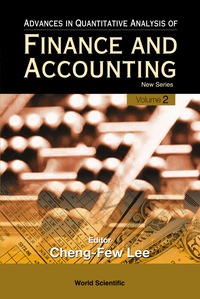Question
Background and Facts The Joneses agreed to purchase a freezer for $900 as the result of a sales persons visit to their home. Tax and
Background and Facts The Joneses agreed to purchase a freezer for $900 as the result of a sales persons visit to their home. Tax and financing charges raised the total price to $1,234.80. Later, the Joneses, who had made payments totaling $619.88, brought a suit in a New York state court to have the purchase contract declared unconscionable under the UCC. At trial, the freezer was found to have a maximum retail value of approximately $300. In the Language of the Court Sol M. WACHTLER, Justice. * * * * * * * [Section 2302 of the UCC] authorizes the court to find, as a matter of law, that a contract or a clause of a contract was unconscionable at the time it was made, and upon so finding the court may refuse to enforce the contract, excise the objectionable clause or limit the application of the clause to avoid an unconscionable result. * * * * * * * The question which presents itself is whether or not, under the circumstances of this case, the sale of a freezer unit having a retail value of $300 for $900 ($1,439.69 including credit charges and $18 sales tax) is unconscionable as a matter of law. Concededly, deciding [this case] is substantially easier than explaining it. No doubt, the mathematical disparity between $300, which presumably includes a reasonable profit margin, and $900, which is exorbitant on its face, carries the greatest weight. Credit charges alone exceed by more than $100 the retail value of the freezer. These alone may be sufficient to sustain the decision. Yet, a caveat [warning] is warranted lest we reduce the import of Section 2302 solely to a mathematical ratio formula. It may, at times, be that; yet it may also be much more. The very limited financial resources of the purchaser, known to the sellers at the time of the sale, is entitled to weight in the balance. Indeed, the value disparity itself leads inevitably to the felt conclusion that knowing advantage was taken of the plaintiffs. In addition, the meaningfulness of choice essential to the making of a contract can be negated by a gross inequality of bargaining power. [Emphasis added.] * * * * * * * The defendant has already been amply compensated. In accordance with the statute, the application of the payment provision should be limited to amounts already paid by the plaintiffs and the contract be reformed and amended by changing the payments called for therein to equal the amount of payment actually so paid by the plaintiffs. Decision and Remedy The court held that the contract was not enforceable and reformed the contract so that no further payments were required. Impact of This Case on Todays Law This early classic case illustrates the approach that many courts take today when deciding whether a sales contract is unconscionablean approach that focuses on excessive price and unequal bargaining power. Most of the litigants who have used UCC 2302 successfully could demonstrate both an absence of meaningful choice and contract terms that were unreasonably favorable to the other party.
Critical Thinking: Why would the sellers knowledge of the buyers limited resources support a finding of unconscionability?
plz answer the critical thinking question
Step by Step Solution
There are 3 Steps involved in it
Step: 1

Get Instant Access to Expert-Tailored Solutions
See step-by-step solutions with expert insights and AI powered tools for academic success
Step: 2

Step: 3

Ace Your Homework with AI
Get the answers you need in no time with our AI-driven, step-by-step assistance
Get Started


